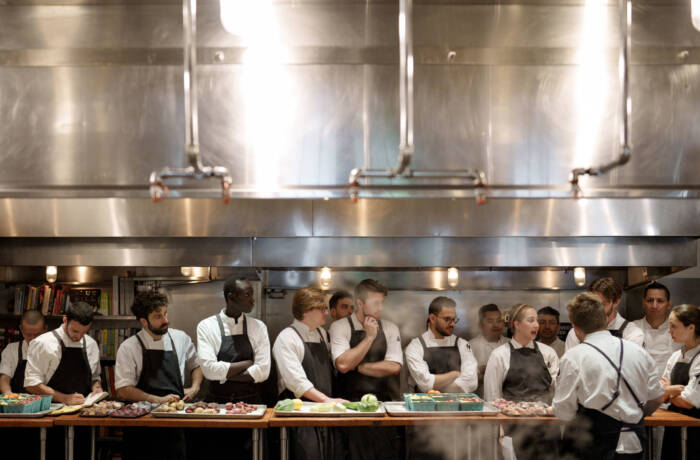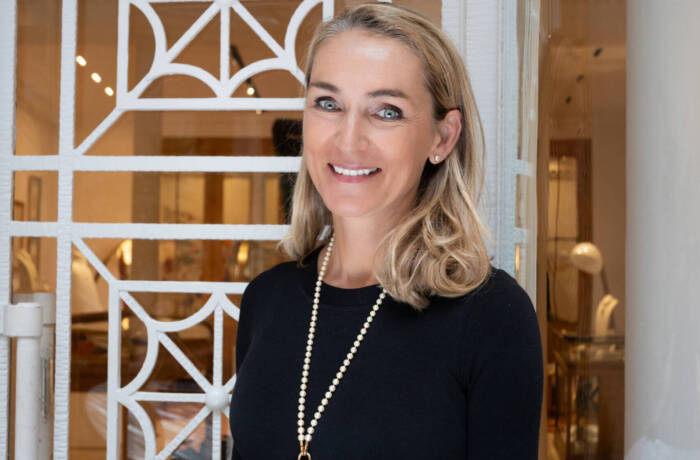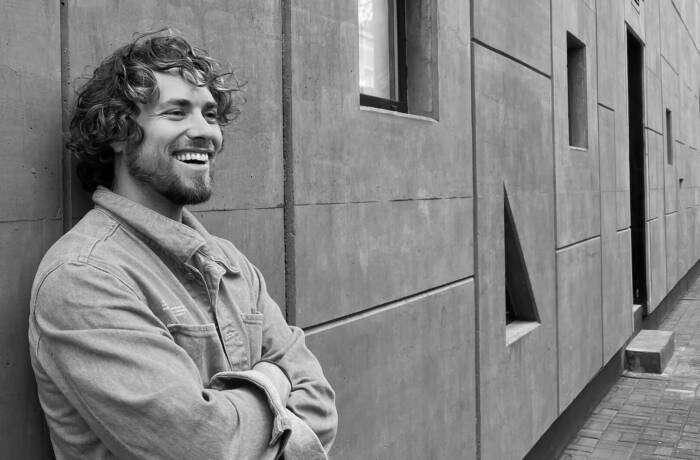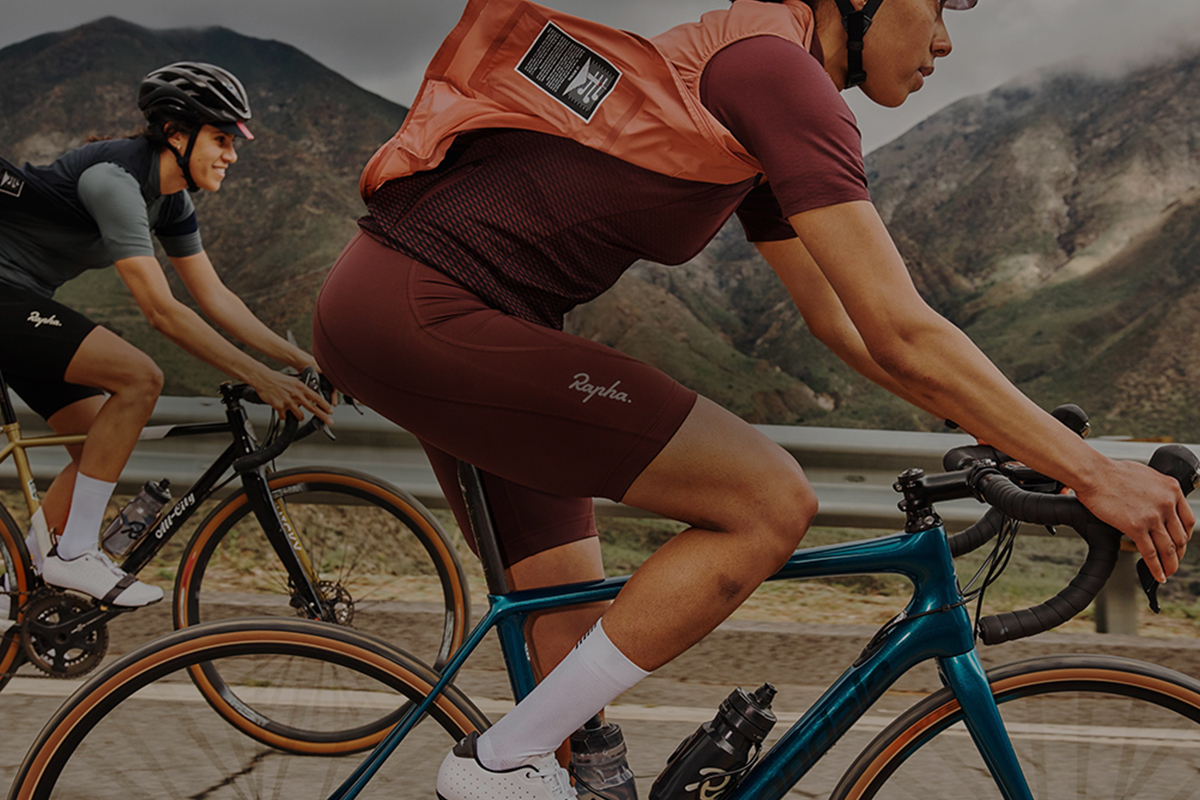
Rapha aims to use recycled materials and organic natural fibres across their products
Francois Convercey is the newly appointed CEO of luxury cycling brand Rapha. Here he speaks to LUX about the company’s sustainability initiatives and the need for greater age and gender diversity in cycling
LUX: How has the structure of Rapha changed with the renewed focus on cycling and its benefits since the pandemic?
Francois Convercey: I wouldn’t say that the pandemic and its involvement in cycling actually changed our strategies or the organisation of our business. Rapha already had the focus of making cycling the most popular sport in the world. From day one, we had the ambition of making cycling aspirational and beautiful, and to get as many people as we could to fall in love with the sport.
As much as the pandemic got people to turn their heads towards the outdoors and cycling, it actually acted as a catalyst towards our original purpose and strategies more than anything else. There was a much broader receptive audience for us to engage with – but all the different building blocks and strategies that we had put in place a decade before the pandemic were still very much relevant in the way we have developed our pricing structure and the way we have made the brand more approachable and more relevant to more people. This made it easier for us to capitalise on the renewed interest in cycling – the way we set up as a business, being a direct-to-consumer business in the first place. The pandemic didn’t change much, but it allowed us to accelerate and grow more quickly. It hasn’t made us shift or change the direction of travel for the business. It just reinforced our belief that we are on the right track.
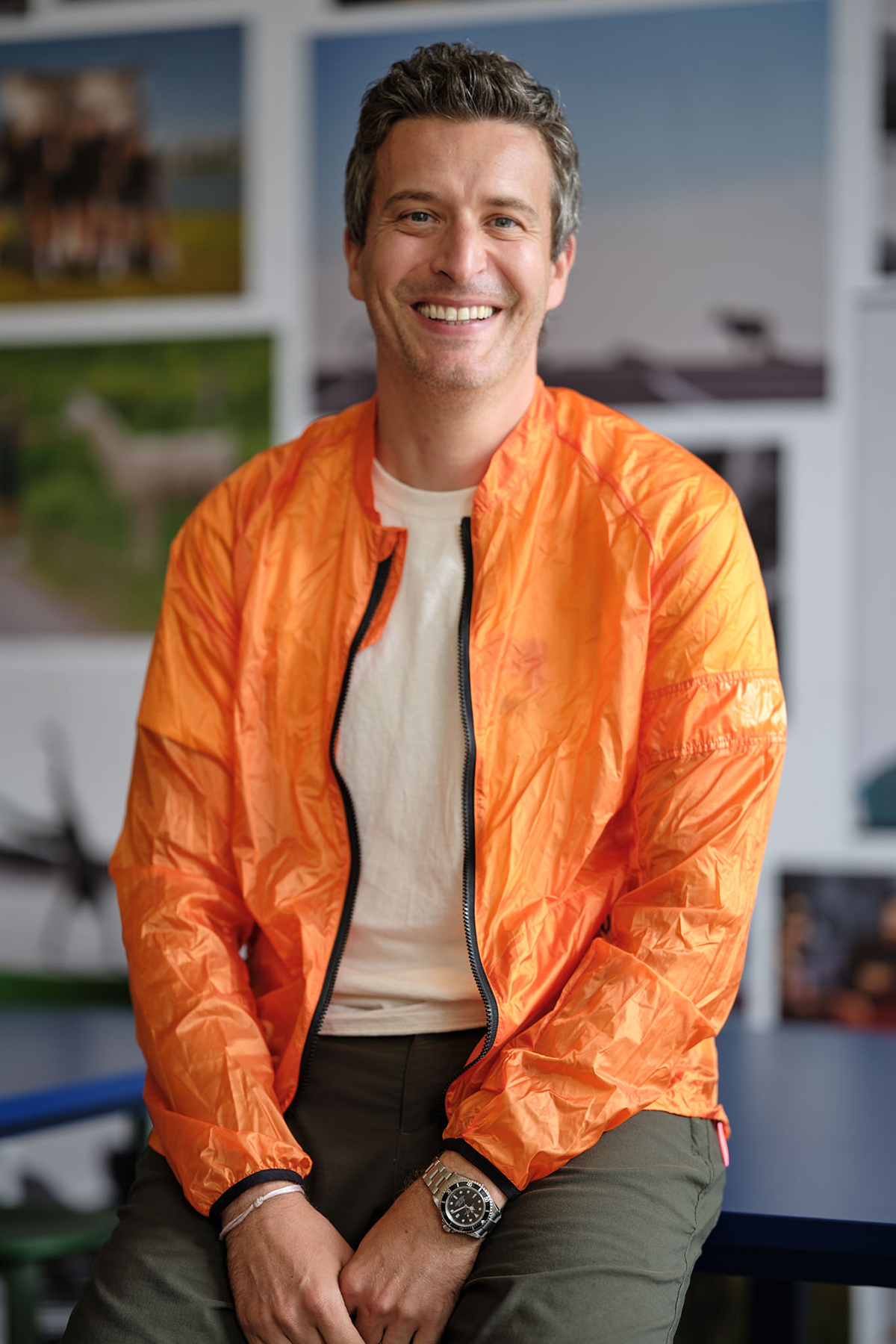
Rapha CEO Francois Convercey
LUX: What do you believe are the imbalances which need to be addressed by sporting brands in conversations about gender equality and diversity?
FC: Cycling as a sport has imbalances which we are trying to address, although it is a long journey. Gender diversity is definitely one of those, which starts at the pinnacle end of the sport, at racing. Equity and equality when it comes to world tour racing and bike racing as a whole is still very imbalanced and focused on male races. Female races have only begun to be broadcasted in the last couple of years. The Tour de France, which is the cycling world’s biggest sporting event and one of the top ten sporting events in the world, didn’t have a women’s tour until 1955, which was then stopped for thirty years, and only reinstated last year. There are still lots of things to be done to provide balance when it comes to media exposure, broadcasting, prize money and salaries for professional cyclists.
Follow LUX on Instagram: luxthemagazine
We try to help drive this balance through the storytelling we do, through our initiatives. During last year’s Tour de France we had a collaboration with a streetwear brand PALACE, using our men’s racing team as a billboard to promote the women’s tour. We are making investments on the women’s tour, sponsoring the women’s world tour team, spending 50% of our marketing money on content and athletes on minorities – women and individuals from under-represented backgrounds, which is part of our impact commitment as a brand. I think the gender balance is one of the key imbalances.

Members of the Rapha Cycling Club coming together
There is definitely an element of age; we want more of the youth to look at cycling as an amazing thing to do. Cycling isn’t the most approachable or accessible sport there is – a bike is more expensive than a pair of running shoes, it requires more time and sometimes infrastructures. Five years ago at Rapha, we began supporting cycling at its grassroots and breaking down barriers to make the sport more accessible to young people and under-represented individuals, and people from under-privileged backgrounds. Over the past five years, the Rapha Foundation donated over $5 million in grants to 38 different grantees who all have concrete initiatives to help break down accessibility to the sport and to support under-privileged kids to have access to cycling – whether it’s supporting programs in schools, or young talent programs. We’ve recently partnered with USA Cycling as part of a program called Search for Speed, which is a track cycling talent identification program, looking for the next US track talent for the 2028 Los Angeles Olympics.
Gender balance is key, age balance is key. The third to look at is accessibility and the role that cycling can play in helping mitigate access to education and healthcare. There have been fantastic initiatives such as World Bicycle Relief, which we have supported over the years and continue to support with the Rapha Foundation, which gives bikes to communities who need bikes for basic life needs – whether it’s education for children to travel to school and not have to walk, or to provide a level of healthcare and health benefits which individuals deserve. The bike can be an amazing tool to break down accessibility barriers for under-privileged communities.
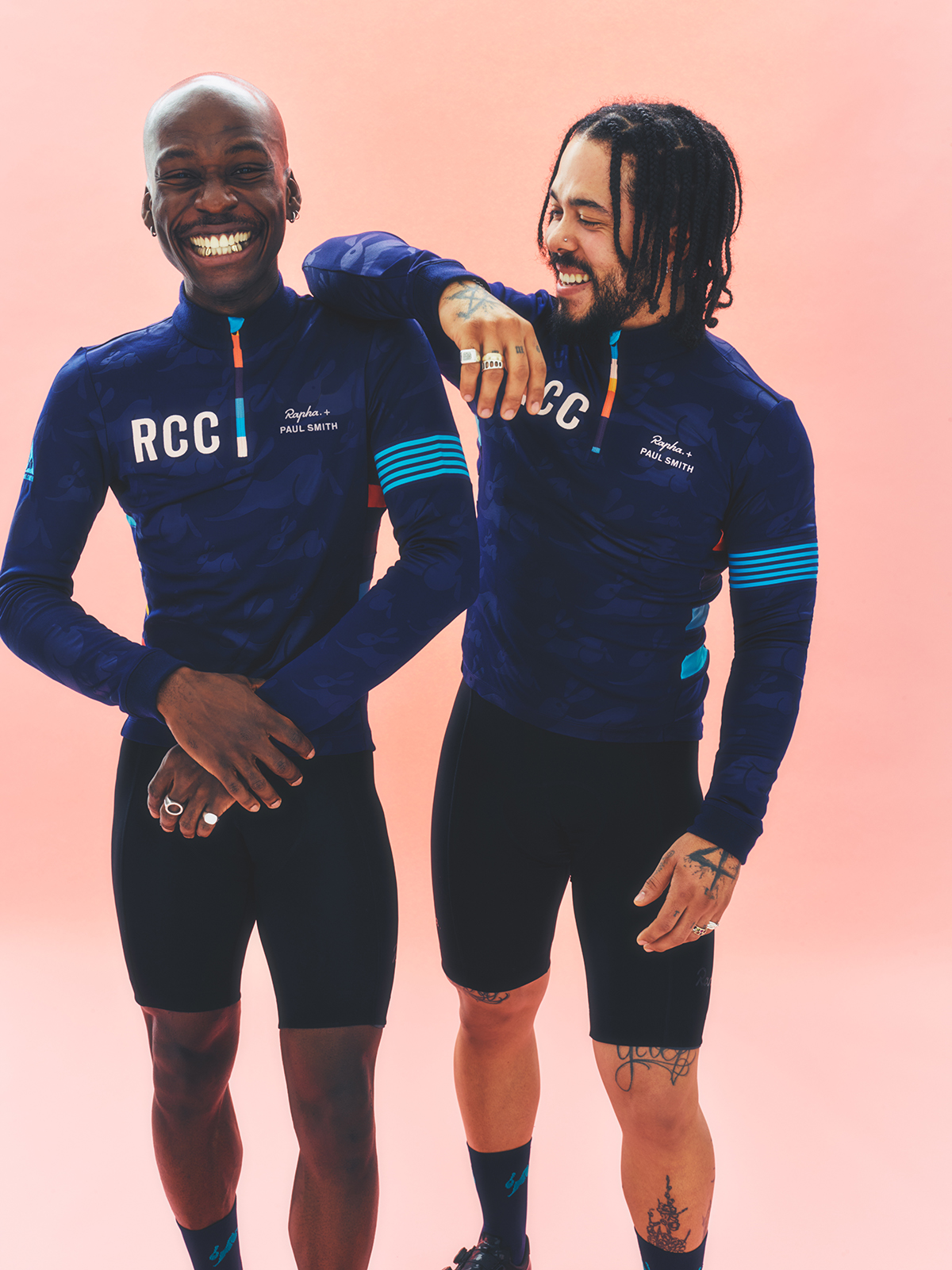
Items from Rapha’s exclusive Rapha + Paul Smith RCC Collection, launched in 2023
LUX: How do you balance promoting professional cycling and equipment whilst also trying to encourage a new generation of amateur cyclists?
FC: I do not necessarily think they are mutually exclusive. The pinnacle-end of the sport, high-performance racing, is aspirational to many individuals and will continue to be in the future. I think being able to provide the opportunity to make a career in cycling and being in a position to inspire communities and future generations about the sport is an amazing prospect. But we won’t succeed in achieving our purpose as a brand if we only focus on racing.
We also have to work on more accessible and more approachable activities which help people discover the values and joys of being on a bike, and how being on a bike is a remedy to the world’s biggest societal challenges and threats – whether it’s environmental benefits with more people commuting on a bike, whether it’s mental health and personal wellbeing which comes when you spend time with yourself and challenge yourself as an individual, or the social friendship and comradery which comes with being on a bike. I think professional and amateur cycling should co-exist and they have their distinctive role to play.

An image from the Rapha Spring/Summer ’23 Collection campaign
LUX: Can you tell us about the main ways you incorporate sustainability into your company?
FC: Sustainability is central. We’ve always looked at it as a duty we have to do the right thing. We launched a repair program which provides the opportunity for any garment which may be damaged to be repaired. We used to do that in-house. We have started to involve partners to help us do it. Over time, we started to pay more attention to how we make our products and the impact that we have. For the last couple of years we’ve been offsetting all the carbon emissions that are generated from the shipments to customers. We’ve offset 100% of our carbon emissions coming from our logistics impact that we have on the planet.
We have been driving a lot of work to convert 100% of our product range into sustainable materials, whether it’s recycled fabrics, recycled fibres, or recyclable or compostable fibres. We’ve covered about 70% of the range now. We are removing all PFC materials from our weather protection products. We’re taking a much more abrasive stance on excess materials we produce. We are now repurposing excess material through excess collections in the Spring of this year. This is now becoming part of our ongoing initiatives. Although it only accounts for 2% of our total volume, it is still a meaningful initiative.

The Los Angeles Rapha Clubhouse
We are about to publish our second impact report in September, which will show our impact over the last twelve months and how much we’ve progressed. We are ahead of track on some key commitments, and some others we have found more challenging than we hoped, or we realise we needed to communicate in a very different way, or we realised that people, planet and communities take framework for broader impact. It takes time, and we’ve embedded that as a culture and as a priority. We have a small sustainability team, but that team is there to inspire a vision. If it’s not embedded in business, we will never make the progress we want to make.
Read more: Pierre Barreau on the future of AI in the music industry
LUX: Do you think cities are adapting to cyclists, or is there more to be done?
FC: We’ve seen cities adapting more and more to cyclists. I think the pandemic has been an amazing catalyst for more infrastructure to be provided, but we are far from being in the right place.
We can look at places like Denmark and Holland, where urban commuting is ingrained in the local culture, and see cities which are built around cycling. There is lots of fantastic work being done by cities and local organisations. I’ve seen places like Paris, for instance, make amazing progress over the last three years and transforming the way people can ride through the city in a much safer way.

The RCC is now a global community with over 10,000 members
It’s a constant push and pull. Safety on a bike is still one of the top three barriers from people riding their bikes. More and more people have decided to take their bikes off the road and ride off the beaten track or in front of the TV, because you’re in a safer environment. This shows we are still far from where we need to be to make riding safe, whether it’s inside or outside the city.
LUX: How do cyclist communities created by the Rapha clubhouses influence the outlook of the company?
FC: We’ve always been committed to real-life experiences from the earliest days of Rapha. We call our physical Rapha stores clubhouses, because they are not just stores, they are a home away from home for our customers. In 2014, we launched Rapha Cycling Club which is part of a membership program which gives people access to unique benefits and unique experiences. That community is now made up of 20,000 individuals across the world spread across 25 different chapters. Actively investing in building communities on the ground is a direct consequence of us trying to inspire the world to take up the bike. The RCC and our clubhouses are there to inspire people to go on a ride every day of the week, you will have a collection of rides you can join as a member.
The cycling communities influence the company on a few levels. It pushes the customer-centrality of the brand because of the unique customer-directed nature of the brand we have got to have the customer-mentality and direct relationship. It depends on feedback from customers and RCC members to have that customer-first mentality. As CEO of the company, I can go on a ride tomorrow morning in a London clubhouse and get real-time feedback from our customers on how they feel and what they think.
Find out more: www.rapha.cc

